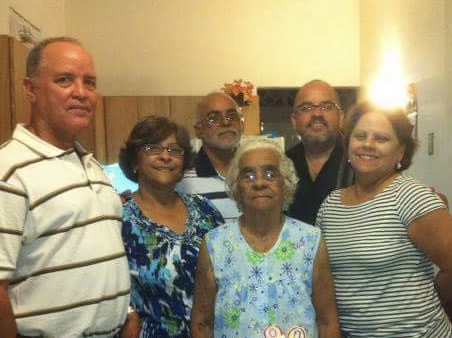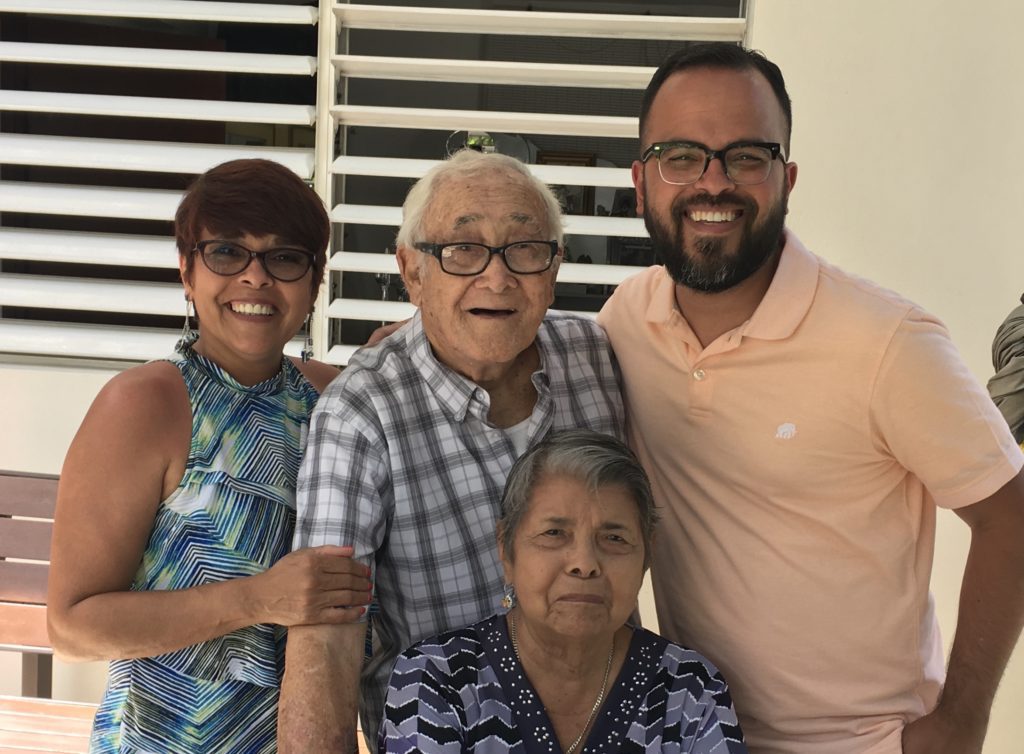
I want to begin with some first things. These are very personal and because of that they provide a way to interpret my writing, past, present, and future. These are markers to my identity, many of whom I’ve had a difficult time claiming. They are also my experience, for it is the only thing that I am an expert on.
In North American parlance I am a multi-racial human. I say this very specifically ‘cause the idea never crossed my mind until that first encounter in a U.S. High School. It quickly became apparent that there were sides based on skin color and identity. It would take me years to realize that it was more than that!
I, like all Puertoricans—whether they claim it or not—am the descendant of African Slaves, Indigenous People called Taino’s, and Spanish colonizers. I grew up in a mestizo and mulatto environment whose primary prejudices were rooted not in the color of one’s skin, one’s physical characteristics, nor ways of speaking, but on class. (I would say that colorism is an affliction in the Caribbean as it is in the United States)
I am the grandson of a woman who was not married to the man who is my grandfather. I am the son of a couple who did not planned for me to be in the world and who found themselves getting married once they knew I was coming and who divorced once my children came. I am the descendant of a people who have for generations struggled with what you call today “mental illness.”

I am a first generation migrant to the U.S. This means that I am still accented and will always be. This accented identity makes me other even in places when my physical characteristics and/or skin color do not register my otherness.
Though I am fully fluent in both English and Spanish, it is Spanish that shapes my soul, thinking, and imagination. It’s rhythms and syntax run through my veins and its vocabulary gives meaning to all things—including how I think about God. There are moments that I miss hearing it so much that I speak to myself out loud in Spanish. As I have gotten older I hear bits of my father as I speak . . . I then know that home is not so far.
I am a Latinx person married to a white woman in the southern United States. This has been a particularly interesting dynamic at times and not just for me but for my spouse who chose to follow southern white U.S. tradition of taking my surname after our wedding. When our youngest was born white, bleach blond, and light eyed some folks thought it would be humorous to question my paternity of said child.
My experiences with prejudice, white supremacy, and racism though real do not even come close to the experiences of African Americans in their own land.
I have chosen to be in the United States the way that any colonized person chooses. The choice shaped by 120 years of colonizing influence, speech, propaganda, narrative, selective history, and self defeating thoughts. When I hear that if I don’t like something I can just “go back to where I came from,” or when I speak Spanish “to stop speaking that non-American language.” I am reminded again and again of how weak the choice has been and yet how codependent Colonialism makes us.

I am a Christian by culture and by formation—not by choice. Again though I do continue to live into the way of Jesus it would be dishonest to claim that somehow there were other options. In Puerto Rico the colonizer’s religion was the only choice, strengthened by mass baptisms of my Taino and African ancestors by the sword and by mass Anti-Catholicism and calls to conversion by the U.S. Protestants who split the island into denominational territories so that all Protestant denominations would have a piece of the new found “mission field.” I have seen the Risen Lord, but I also recognize that Christianity as I have experienced it is truly the Colonizer’s Religion (Frederick Douglass coined the term Slaveholder Religion that roots my own use of the term).
I am a United Methodist because after 20 years in an evangelical neo-fundamentalist tradition I was ready for a freeing denominational home. Little did I know at the time that though it provided a freeing of the imagination as it related to women in ministry and to a more open biblical hermeneutic that in the end as a 90%+ White denomination it would not, did not, and could not see me for who I was, and it could not free me. In fact like my ancestors before me I ended up bound again, just in a different way, under a different set of understandings.
I grew up with a call to justice. One that seemed imprinted in the ways my family of origin talked. One that I grew up seeing as rooted in the Gospels and in the entire biblical witness. This was no politically “liberal” understanding for I first experienced it in the evangelical, conservative, neo-colonialist, and fundamentalist tradition of my early upbringing in Puerto Rico. This understanding of justice as key to being human and being Christian was messy, imperfect, loud, and at times filled with conflict but it had an edge, a fighting spirit, a deep commitment to “la lucha” (the struggle, though English does not do the word justice) and to the reality of being “jodio” another important word that means “fucked” though again I don’t think English does the word justice either. For a good treatment of “jodio” and “joder” for an English speaking audience see the work of Miguel de la Torre.
I believe that leadership should be exercise “en conjunto,” that only in community, through conciliar leadership can communities and institutions truly serve the common good. I believe that in Latin America we know the dangers of the solo-male leader but continually ignore it and that to our own peril. This last thing reminds me that white supremacy and patriarchy are linked and we must pay attention to that.
I am not a victim though I have been victimized. I recognize the agency I have, but I also know the experiences that I have had—the realities of being me in the world and in the church—so I also must speak, using the privilege that I have (See below) and help awaken our communal consciousness, especially in the church whose primary claim is a God who is love, whose character is loving kindness, and whose exercise of power was limiting so that we could know this God in our “flesh.”
Finally I am Male, Cisgender, bilingual human with and more privilege than many of my other Latinx, black, LGBTQI, and female siblings.
In other words even though I live “en la lucha,” and “jodio,” even though I do have the scars of being an accented, brown, stranger in a strange land, I am still ahead of so many marginalized people’s in our world. This reality humbles me, grounds, me and fuels me. It also calls me to no longer be silent about these things that matter!
